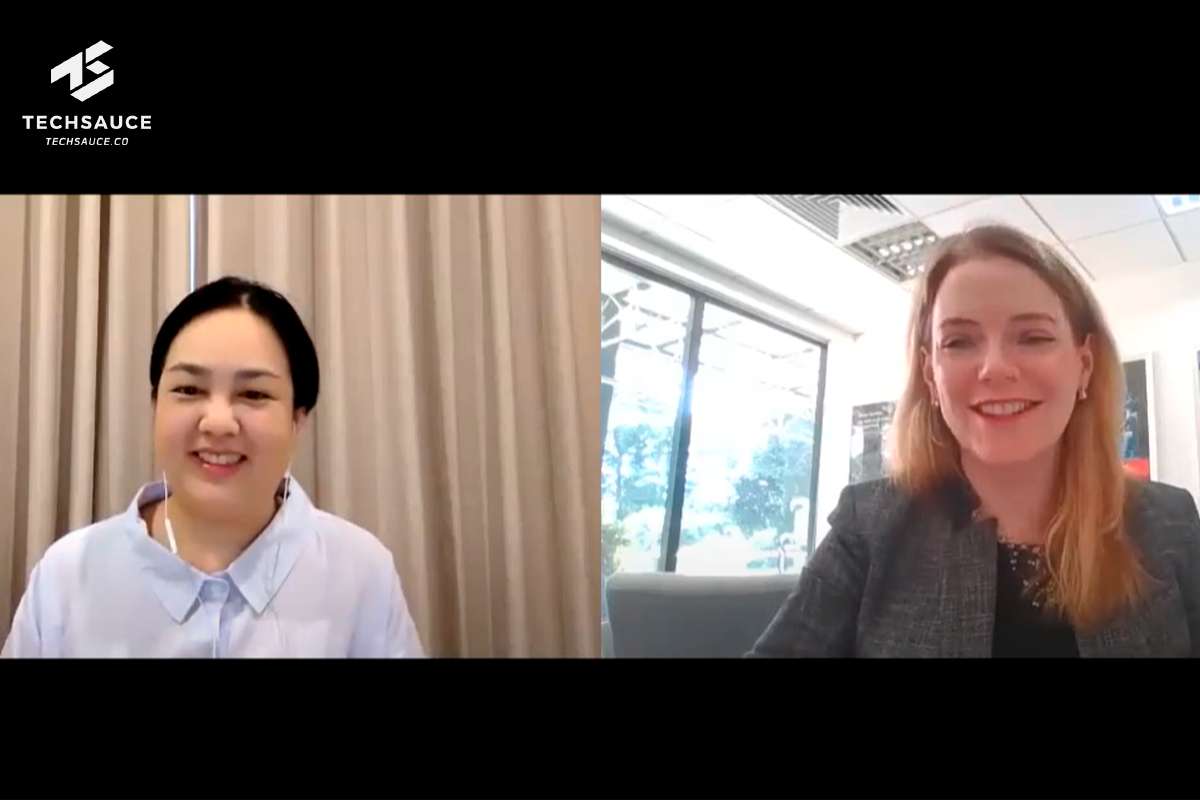The Evolving Landscape of Cybersecurity: Insights from Akshay Joshi
In the rapidly evolving world of technology, cybersecurity stands out as a paramount concern for industries across the globe.
Keeping up to date with the latest Techsauce Media Podcast, we delved into this critical subject with Akshay Joshi, the Head of Industry and Partnerships at the Center for Cybersecurity of the World Economic Forum (WEF), shedding light on the challenges and strategies in countering cyberthreats, emphasizing the need for robust cybersecurity measures in every sector.
About Askshay Joshi and Centre for Cybersecurity in World Economic Forum (WEF)
Akshay Joshi serves as the Head of Industry and Partnerships at the World Economic Forum's (WEF) Centre for Cybersecurity where he leads efforts to enhance global collaboration and address complex cybersecurity challenges. The Centre, under Joshi's guidance, focuses on strengthening cyber resilience, combating cybercrime, and preparing for emerging digital threats, playing a crucial role in securing global digital infrastructure. Currently, it actively involves over 150 organizations from both public and private sectors, focusing on three key areas: building cyber resilience, strengthening global cooperation, and navigating cyber frontiers.
Cyber-Resiliency
There is no such thing as 100% cyber protection.
Given the decade where technology advancement reigns, Joshi underlines the shift in focus from prevention to resilience, highlighting the necessity of bouncing back from incidents to achieve cyber resilience. The Center's work spans various sectors, including electricity, oil and gas, and manufacturing, demonstrating the breadth of their impact.
Strengthening Global Cooperation
A standout aspect of the WEF’s approach is fostering international collaboration. The Partnership Against Cybercrime initiative exemplifies this, bringing together law enforcement and the private sector. Joshi rightly points out, "The technical expertise, perhaps fair to say, that the private sector has significant technical expertise," making this cooperation crucial in combating cybercrime. Among strengthening global cooperation and navigating cyber frontiers to Cyberthreats, the Center, as Joshi mentioned also initiated a flagship “Global Cybersecurity Outlook” report, which amalgamates perceptions from business and cyber leaders on evolving cyber risks and best practices.
Cybersecurity's Crucial Role in Global Economy and the Need for Public-Private Partnerships
There’s a highlight toward the critical impact of cybersecurity on global economic stability, referencing the World Economic Forum's Global Risks Report which places widespread cybercrime and insecurity among the top global risks as emphasized by Joshi. By citing real-world incidents like the Colonial Pipeline and JBS attacks, he demonstrated how cybersecurity threats act as multipliers in exacerbating crises, particularly in crucial sectors like energy and food. Further, Joshi underscored the imperative of public-private partnerships in this context. These collaborations, he pointed out, leverage the private sector's technical know-how alongside the law enforcement's authority to prosecute, thereby enhancing resilience in critical infrastructure and addressing the cybersecurity talent gap. This synergy between various sectors is vital in creating a more secure and economically stable global landscape.
Addressing Emerging Cyberthreats and Fostering Cybersecurity Awareness
Pressing onto light on the evolving nature of cyberthreats, Joshi emphasizes the ongoing challenges posed by ransomware, supply chain security, and identity theft. He warned of the rapidity with which cybercriminals adapt to new technologies, stressing the importance of constant vigilance and innovative approaches in cybersecurity strategies. Alongside these challenges, Joshi highlighted the World Economic Forum's commitment to cybersecurity awareness and education as a key strategy in combating these threats. He underscored the necessity of bridging the cyber talent gap, focusing on initiatives designed to attract a more diverse range of individuals to cybersecurity careers.
Once people are aware, not only do they embrace good cyber hygiene in their own personal lives, but the hope is that increasingly, a lot of our youth will start to think about promising careers in cybersecurity as well.
As awareness brings curiosity, Joshi believes that curiosity shall increase societal awareness about digital risks and promoting cyber hygiene can spark curiosity and interest, especially among the youth. This, in turn, could lead to more people considering careers in cybersecurity, thus addressing the critical shortage of skilled professionals in the field. This approach not only combats the immediate threat landscape but also builds a more resilient and informed future workforce.
Key Takeaways for Businesses
For businesses, especially startups and corporate leaders, Joshi offered two crucial pieces of advice:
1. Leadership in Cybersecurity: Cybersecurity is not just a technological problem but a leadership issue. It requires the attention and savviness of senior leadership to integrate it seamlessly into business risk management.
Cybersecurity knee is not a technological problem. Cybersecurity is a leadership issue and therefore demands the attention of senior leadership within organizations.
2. Security by Design: In an era of digital business models, it's vital to embed security at the core of technological innovations and not treat it as an afterthought.
The journey of cybersecurity is multifaceted, involving the building of resilience, the fostering of global cooperation, the proactive tackling of emerging threats, and the widespread cultivation of cybersecurity awareness. The crux of this ongoing battle against cyberthreats lies in a steadfast commitment to resilience, a collaborative spirit across sectors, and a proactive approach from leadership. This approach offers a crucial and dynamic roadmap for organizations navigating the increasingly complex digital landscape. As the digital world continues to evolve, it's clear that our strategies in cybersecurity must not only adapt but also anticipate, ensuring a secure and resilient digital future for all.
For more inspiring innovative talks and insight find out more about Techsauce Global Podcast at Techsauce.co
Sign in to read unlimited free articles





.png)
